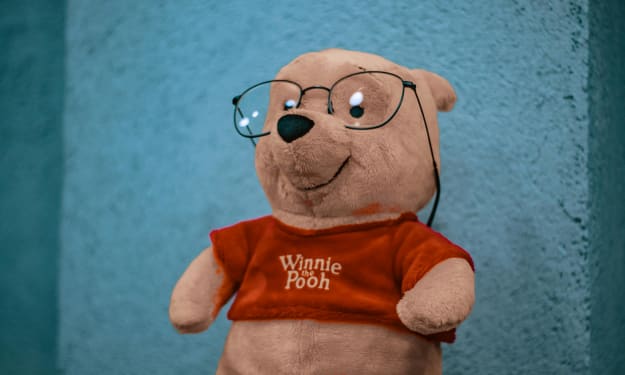
Since swinging onto the comic book scene in 1962, Spider-Man has captivated audiences with his relatable struggles, witty banter, and unwavering sense of responsibility. Over the years, the character has undergone numerous cinematic adaptations, each offering a unique interpretation of the iconic web-slinger. In this article, we delve into the three major Spider-Man film series: Sam Raimi's "Spider-Man" trilogy (2002-2007), Marc Webb's "The Amazing Spider-Man" duology (2012-2014), and Marvel Studios' integration of Spider-Man into the Marvel Cinematic Universe (MCU) (2016-present). Through a comparative analysis of these films, we'll explore how the evolution of Spider-Man on screen reflects Marvel's shift from intimate storytelling to blockbuster spectacle, and its impact on viewer engagement and connection.
Sam Raimi's "Spider-Man" Trilogy: An Intimate Origin Story
Sam Raimi's "Spider-Man" trilogy, starring Tobey Maguire as Peter Parker, served as a cornerstone for modern superhero cinema. Released between 2002 and 2007, these films emphasized Peter's personal journey, portraying him as a relatable everyman thrust into extraordinary circumstances.
Spider-Man (2002): Raimi's first installment laid the groundwork for Peter's transformation from awkward high school student to masked vigilante. The film deftly balanced action-packed set pieces with intimate character moments, establishing Peter's sense of responsibility and moral compass. Maguire's portrayal captured Peter's vulnerability and earnestness, endearing him to audiences worldwide. The film's focus on Peter's relationships, particularly with Uncle Ben and Mary Jane Watson, added emotional depth and resonance to the narrative.
Spider-Man 2 (2004): Widely regarded as one of the best superhero films ever made, "Spider-Man 2" delved deeper into Peter's internal struggles as he grapples with the burdens of heroism. The film masterfully explored themes of sacrifice, identity, and the consequences of wielding great power. Alfred Molina's portrayal of Dr. Otto Octavius (aka Doc Ock) provided a compelling foil to Peter, highlighting the moral complexities of heroism. The film's emphasis on character-driven storytelling elevated it beyond typical superhero fare, earning critical acclaim and box office success.
Spider-Man 3 (2007): While the final installment in Raimi's trilogy received mixed reviews, it continued to prioritize character development over spectacle. "Spider-Man 3" delved into Peter's darker impulses and the temptation of revenge, culminating in a showdown with iconic villains like Venom and Sandman. Despite its flaws, the film remained grounded in Peter's emotional journey, offering a satisfying conclusion to his arc.
Marc Webb's "The Amazing Spider-Man" Duology: A Modern Reimagining
Following the conclusion of Raimi's trilogy, Sony Pictures rebooted the franchise with "The Amazing Spider-Man" series, starring Andrew Garfield as Peter Parker. Directed by Marc Webb, these films aimed to provide a fresh take on the character while exploring his origins in a more contemporary setting.
The Amazing Spider-Man (2012): Webb's reboot focused on Peter's quest to uncover the truth behind his parents' disappearance while battling the villainous Lizard. Andrew Garfield's portrayal emphasized Peter's wit and sarcasm, offering a different interpretation from Maguire's earnest portrayal. The film's darker tone and emphasis on Peter's outsider status distinguished it from Raimi's trilogy, though it struggled to escape comparisons to its predecessor.
The Amazing Spider-Man 2 (2014): The sequel introduced a slew of villains, including Electro and Green Goblin, but struggled with pacing issues and an overstuffed plot. While Garfield's chemistry with Emma Stone's Gwen Stacy remained a highlight, the film failed to recapture the emotional depth of its predecessor. Despite its ambitious scope, "The Amazing Spider-Man 2" failed to resonate with audiences and underperformed at the box office, leading to the cancellation of further sequels.
Marvel Studios' Integration of Spider-Man into the MCU: A New Chapter
Marvel Studios' collaboration with Sony Pictures brought Spider-Man into the Marvel Cinematic Universe, with Tom Holland stepping into the role of Peter Parker. This integration allowed Spider-Man to interact with other beloved Marvel characters, adding depth and complexity to his world.
Captain America: Civil War (2016): Spider-Man's debut in the MCU marked a significant turning point for the character. Tom Holland's portrayal showcased a younger, more inexperienced version of Peter Parker, eager to prove himself among Earth's Mightiest Heroes. His inclusion in the film's epic superhero showdown added a fresh dynamic to the established MCU roster, setting the stage for future appearances.
Spider-Man: Homecoming (2017): Directed by Jon Watts, "Spider-Man: Homecoming" further explored Peter's struggles with balancing his superhero duties and personal life. Michael Keaton's portrayal of the Vulture provided a grounded antagonist for Peter to contend with, while the film's high school setting and coming-of-age themes resonated with audiences. The film's emphasis on Peter's growth and maturation within the MCU solidified his place among Marvel's roster of iconic heroes.
Spider-Man: Far From Home (2019): The sequel took Peter out of his comfort zone, sending him on a globetrotting adventure while dealing with the aftermath of "Avengers: Endgame." Jake Gyllenhaal's portrayal of Quentin Beck/Mysterio provided a charismatic new villain for Peter to face, challenging him both physically and emotionally. The film's exploration of Peter's place in a post-Endgame world and his evolving relationship with mentor Tony Stark further deepened his character arc within the MCU.
Marvel's Shift from Intimate Storytelling to Blockbuster Spectacle
While each iteration of Spider-Man has its merits, there's a noticeable shift in tone and emphasis as the franchise progresses. Raimi's trilogy prioritized character-driven storytelling, delving into Peter Parker's psyche and emotional struggles. In contrast, later adaptations, particularly those within the MCU, place a greater emphasis on spectacle and interconnected storytelling.
This transition reflects Marvel's broader strategy of building a cohesive cinematic universe, where individual character arcs are often sacrificed for the sake of larger narratives. While this approach has its advantages, allowing for epic team-ups and crossover events, it can also dilute the personal connection audiences feel with the characters.
Conclusion: Balancing Spectacle with Intimacy
In conclusion, the evolution of Spider-Man on screen reflects Marvel's transition from intimate storytelling to blockbuster spectacle. While each iteration brings its own strengths and weaknesses, it's crucial to strike a balance between epic storytelling and intimate character exploration to maintain the emotional resonance that has made these characters endure for generations.
As Marvel continues to expand its cinematic universe with new characters and storylines, it's essential not to lose sight of what made these characters resonate with audiences in the first place. Spider-Man, with his relatable struggles and everyday heroism, serves as a reminder of the power of personal storytelling in an increasingly interconnected cinematic landscape.
By embracing both the spectacle of the MCU and the intimate character moments that define Spider-Man, Marvel can continue to captivate audiences and keep the web-slinger swinging for years to come.
About the Creator
Majorie
Passionate about film and even more philosophical about society.





Comments
There are no comments for this story
Be the first to respond and start the conversation.